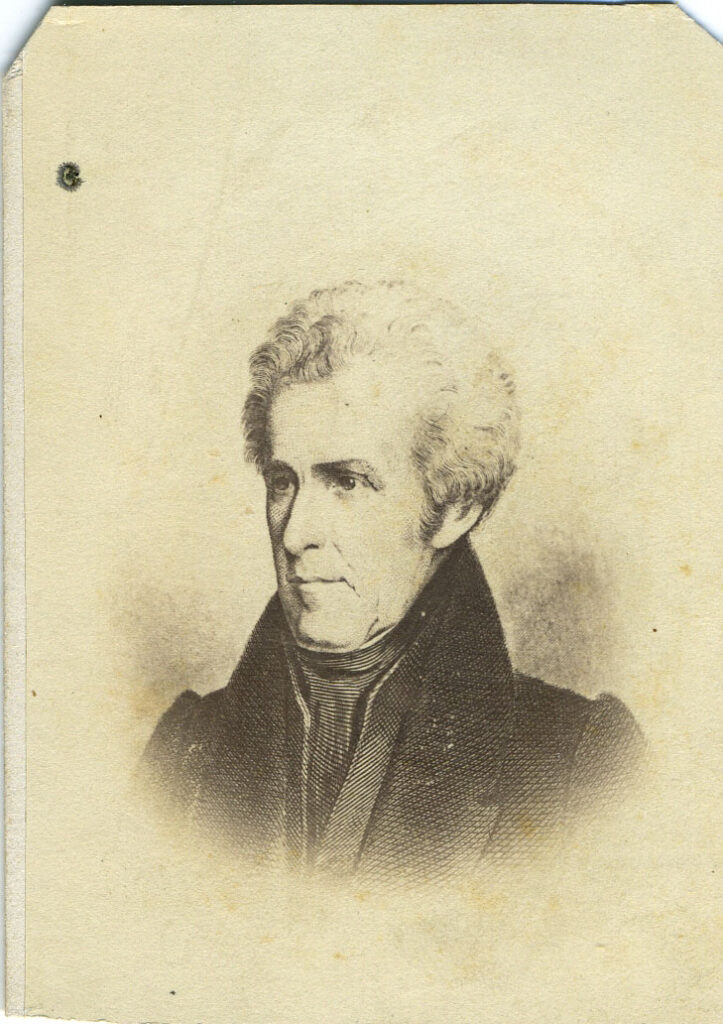Section #5 - A new Whig Party favors industrialization over the Democrat’s agrarian economy
Chapter 51: Prospects Grow For A “Second Political Party System”
March 1825 Forward
The Political Landscape Shifts In 1824

Ever since Washington’s exit in 1797, the division in American politics has pared Federalists such as John Adams against anti Federalists such as Thomas Jefferson. This split is known among scholars as the “First Party System.”
When the Federalists stagnate, the Jeffersonians enjoy 24 years of essentially one party rule as Democratic-Republicans during the Virginia Dynasty.
Then something appears to change in 1824.
Jefferson himself looks at the outcome and concludes that JQ Adams and Henry Clay are simply Federalists in disguise, intent on replacing states’ rights with federal government mandates.
The (party) amalgamation is of name only, not of principle. Their aim is now therefore to break down the rights reserved by the constitution to the states as a bulwark against that consolidation, the fear of which produced the whole of the opposition to the constitution at its birth.
But a closer examination suggests several other factors at work.
One is the impact of America’s shifting population. The North with its large cities is adding voters far in excess of the South. The West is booming and both Clay and Jackson are “men of the West” who will give voice to that region.
A second factor is slavery and the future of the institution, especially as it relates to its expansion into the new territories across the Mississippi River. The Tallmadge Amendment surfaces this issue and, while the 1820 Missouri Compromise tamps it down, the North-South divide remains profound.
Finally the gap continues to grow between those who favor an agrarian economy and those who support diversification and industrialization.
As much as the Jeffersonians long for continuation of un-challenged Democratic-Republican rule, the signs are pointing the way toward a “Second Party System.”
For the moment, however, it will be Adams’ “National Republicans” against the Jackson “Democrats.”
1825-1829
The Anti-Adams Forces Stymie His Agenda
In his Inaugural, Adams lays out a very ambitious agenda built around Clay’s “American System” initiatives designed to insure America’s place as a first-rate global power.
His internal plan includes upgrades in physical infrastructure (roads, bridges, canals), basic knowledge (a national university, naval academy, observatory), science (standardized weights and measures) and exploration (a new Department of the Interior). A protective tariff will help finance these along with any needed measures taken by a strong U.S. Bank.
Diplomatic proposals center on participation in a Pan-American conference hosted by Simon Bolivar (a “good neighbors” gesture) and continued efforts aimed at expanding the borders across the entire continent.
Accomplishing these goals will require an active federal government, which Adams announces in no uncertain terms.
The spirit of improvement is abroad upon the earth…Let us not be unmindful that liberty is power. While foreign nations…are advancing with gigantic strides…were we to slumber in indolence or…proclaim to the world that we are palsied by the will of our constituents, would it not doom ourselves to inferiority?
The President’s cabinet warns him in advance that his proposals will be met with resistance, and they are quickly proven right.
Traditional Democratic-Republicans, in the Jefferson mold, accuse Adams of grabbing power for the national government that has been reserved to the states in the 10th Amendment. In their eyes, Clay’s “American Systems” is no more than a warmed-over version of what Alexander Hamilton proposed a quarter century earlier.
Andrew Jackson weighs in, latching onto one unfortunate phrase in the speech, which seems to call upon the congress to override the will of their constituents.
When I view…the government, embraced in the recommendation of the late message, with the powers enumerated…together with the declaration that it would be criminal for the agents…to be palsied by the will of their constituents, I shudder for the consequence – if not checked by the voice of the people, it must end in consolidation & then in despotism.
From this moment forward, congressional resistance to both Adams and Clay gains momentum.
The effect will be a three-year stymie of almost all of the President’s programs.